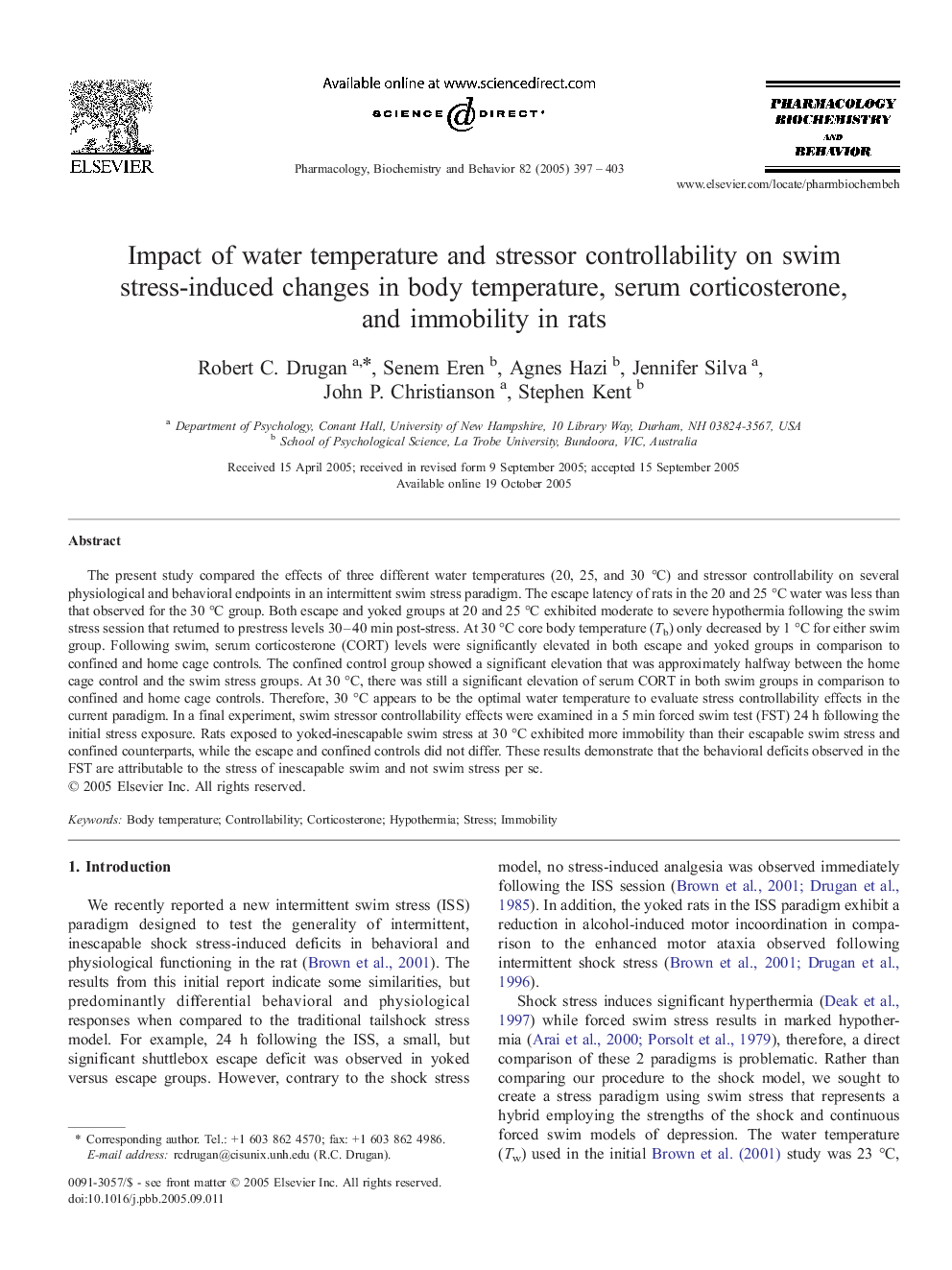| کد مقاله | کد نشریه | سال انتشار | مقاله انگلیسی | نسخه تمام متن |
|---|---|---|---|---|
| 10838516 | 1067170 | 2005 | 7 صفحه PDF | دانلود رایگان |
عنوان انگلیسی مقاله ISI
Impact of water temperature and stressor controllability on swim stress-induced changes in body temperature, serum corticosterone, and immobility in rats
دانلود مقاله + سفارش ترجمه
دانلود مقاله ISI انگلیسی
رایگان برای ایرانیان
کلمات کلیدی
موضوعات مرتبط
علوم زیستی و بیوفناوری
بیوشیمی، ژنتیک و زیست شناسی مولکولی
زیست شیمی
پیش نمایش صفحه اول مقاله

چکیده انگلیسی
The present study compared the effects of three different water temperatures (20, 25, and 30 °C) and stressor controllability on several physiological and behavioral endpoints in an intermittent swim stress paradigm. The escape latency of rats in the 20 and 25 °C water was less than that observed for the 30 °C group. Both escape and yoked groups at 20 and 25 °C exhibited moderate to severe hypothermia following the swim stress session that returned to prestress levels 30-40 min post-stress. At 30 °C core body temperature (Tb) only decreased by 1 °C for either swim group. Following swim, serum corticosterone (CORT) levels were significantly elevated in both escape and yoked groups in comparison to confined and home cage controls. The confined control group showed a significant elevation that was approximately halfway between the home cage control and the swim stress groups. At 30 °C, there was still a significant elevation of serum CORT in both swim groups in comparison to confined and home cage controls. Therefore, 30 °C appears to be the optimal water temperature to evaluate stress controllability effects in the current paradigm. In a final experiment, swim stressor controllability effects were examined in a 5 min forced swim test (FST) 24 h following the initial stress exposure. Rats exposed to yoked-inescapable swim stress at 30 °C exhibited more immobility than their escapable swim stress and confined counterparts, while the escape and confined controls did not differ. These results demonstrate that the behavioral deficits observed in the FST are attributable to the stress of inescapable swim and not swim stress per se.
ناشر
Database: Elsevier - ScienceDirect (ساینس دایرکت)
Journal: Pharmacology Biochemistry and Behavior - Volume 82, Issue 2, October 2005, Pages 397-403
Journal: Pharmacology Biochemistry and Behavior - Volume 82, Issue 2, October 2005, Pages 397-403
نویسندگان
Robert C. Drugan, Senem Eren, Agnes Hazi, Jennifer Silva, John P. Christianson, Stephen Kent,